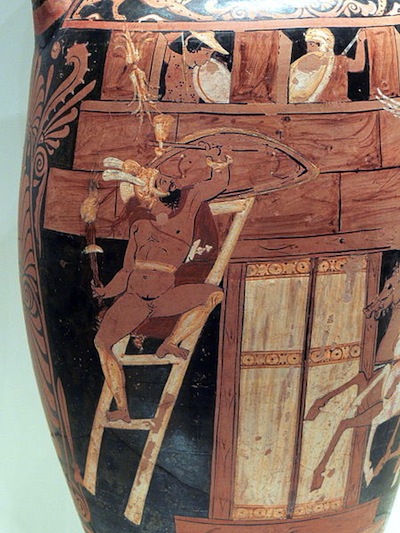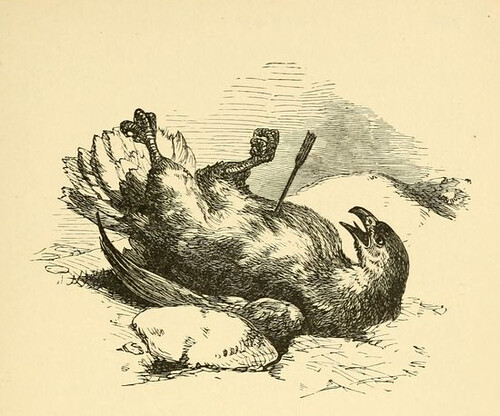HODIE (Roman Calendar): pridie Kalendas Octobres.
MYTHS and LEGENDS: The art image for today's legend shows Arachne by Diego Velazquez; you can also see the legends for the current week listed together here.

TODAY'S MOTTOES and PROVERBS:
3-WORD MOTTOES: Today's 3-word motto is Secundum naturam vivo (English: I live according to nature).
3-WORD PROVERBS: Today's 3-word proverb is Beati qui durant (English: Blessed are those who endure).
RHYMING PROVERBS: Today's proverb with rhyme is: Exitus ostendit quo mundi gloria tendit (English: The end shows where the glory of the world goes - it rhymes in English too!).
VULGATE VERSES: Today's verse is Graecis ac barbaris, sapientibus et insipientibus debitor sum (Romans 1:14). For a translation, check out the polyglot Bible, in English, Hebrew, Latin and Greek, at the Sacred Texts Archive online.
ELIZABETHAN PROVERBS: Here is today's proverb commentary, this time by Taverner: Principium dimidium totius: The beginninge is halfe the hole. There be manie greate delayers. Longe they be ere they can be perswaded to set upon an honest act, so manie perils they cast. To morrow, to morrow they say wee will begin, but this to morrow is ever comming but never present, wherfore who so with good courage ventureth uppon his matters, hat alredy half done.
BREVISSIMA: The distich poster for today is Quod Galla Volt. Click here for a full-sized view.

And here are today's proverbial LOLcats:


TODAY'S FABLES:
MILLE FABULAE: The fable from the Mille Fabulae et Una widget is Lupus Esuriens et Nutrix, the story of a very literal-minded wolf.
FABULAE FACILES: The fable from the Fabulae Faciles widget is Aquila et Sagitta, the story of an eagle who is her own worst enemy (this fable has a vocabulary list).
Greek Bible Art - and Latin and English, too. Below is one of my Greek Bible Art graphics; for the individual Greek, Latin and English versions of the graphic, see the blog post: ἀφεῖλεν τὴν κεφαλὴν αὐτοῦ ἀπ᾽ αὐτοῦ. Abscidit caput eius. She took away his head from him.

Myth and Folklore Books. I'm accumulating some book recommendations for the classes I teach and wanted to share them here. Today's book is Aeschylus' Prometheus Bound and the Seven Against Thebes translated by T. A. Buckley; you can find additional information here. This is a free Amazon Kindle eBook, and you don't need a Kindle to read it - you can read Kindle books on any computer or mobile device, or you can use the Amazon Cloud Reader in your browser.

